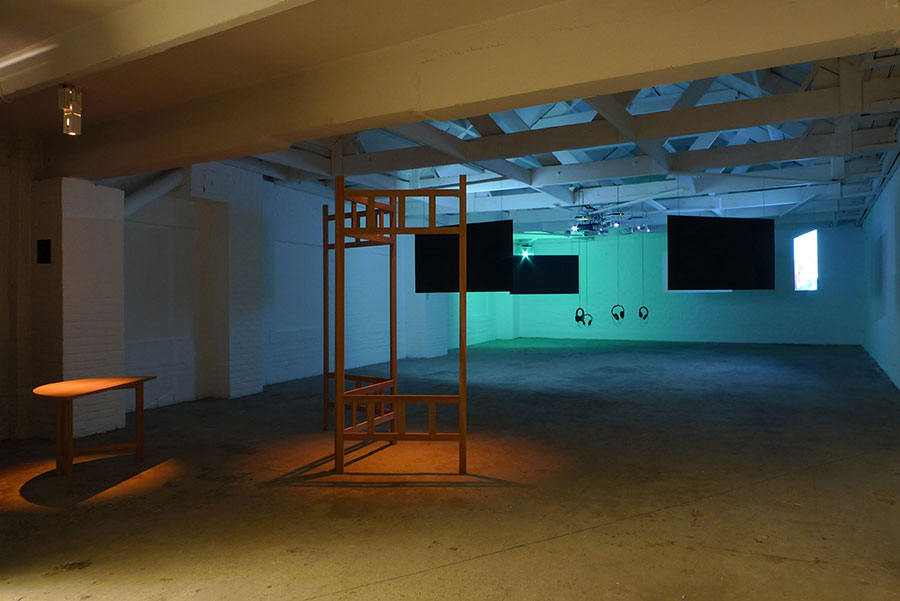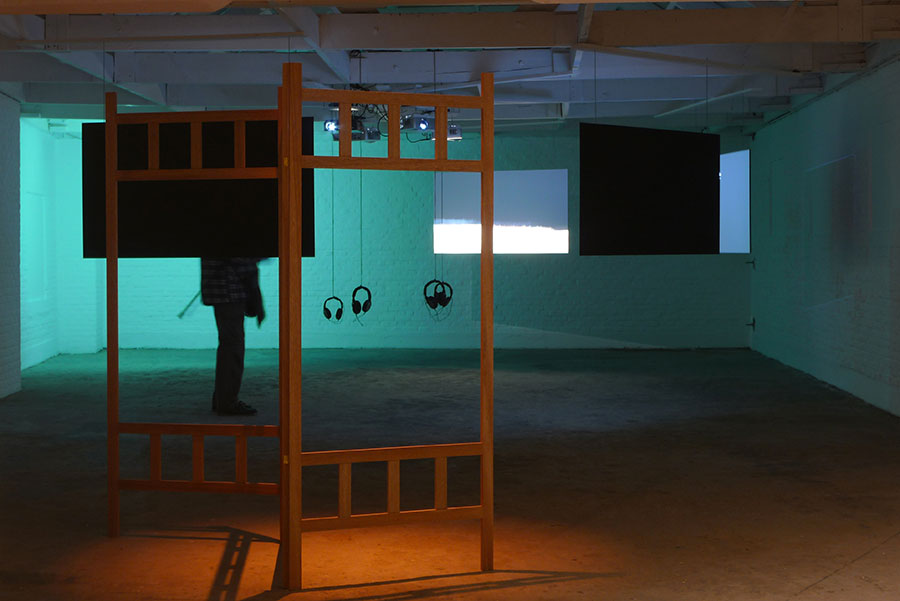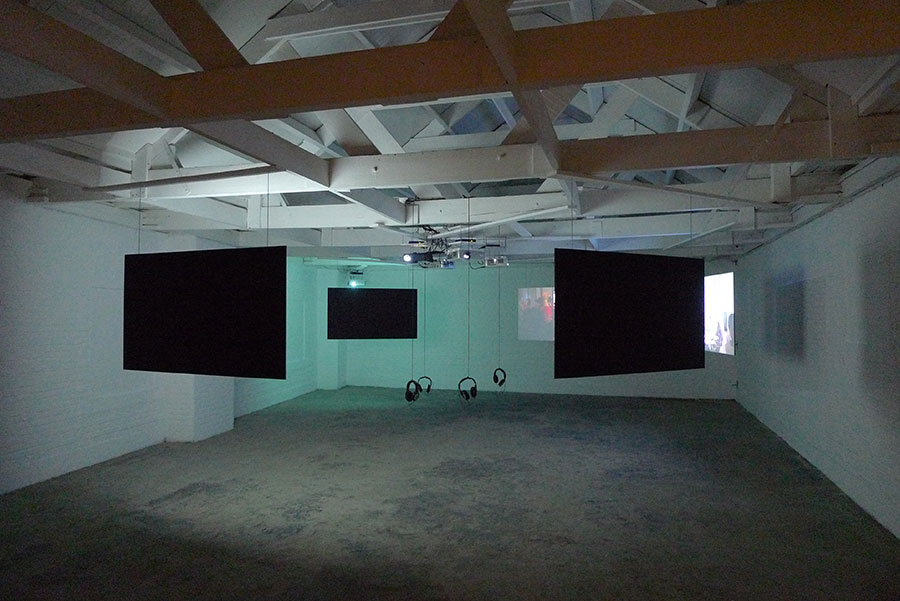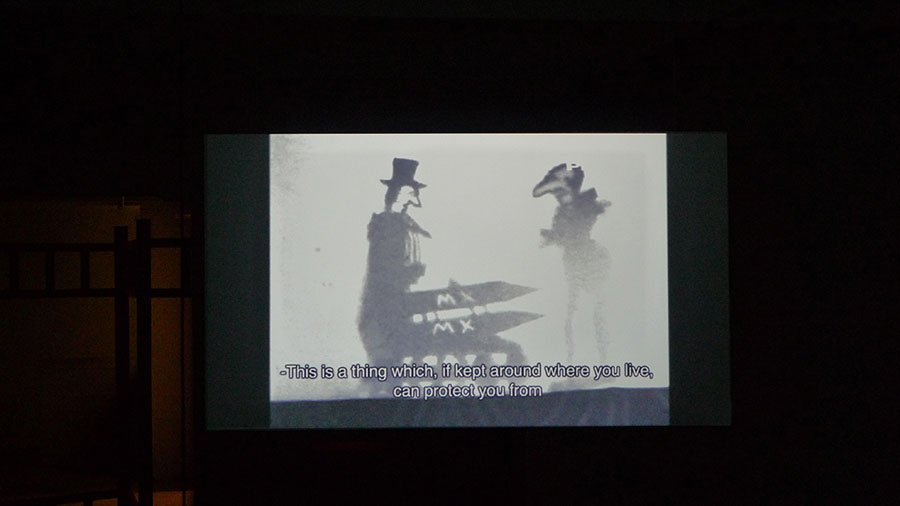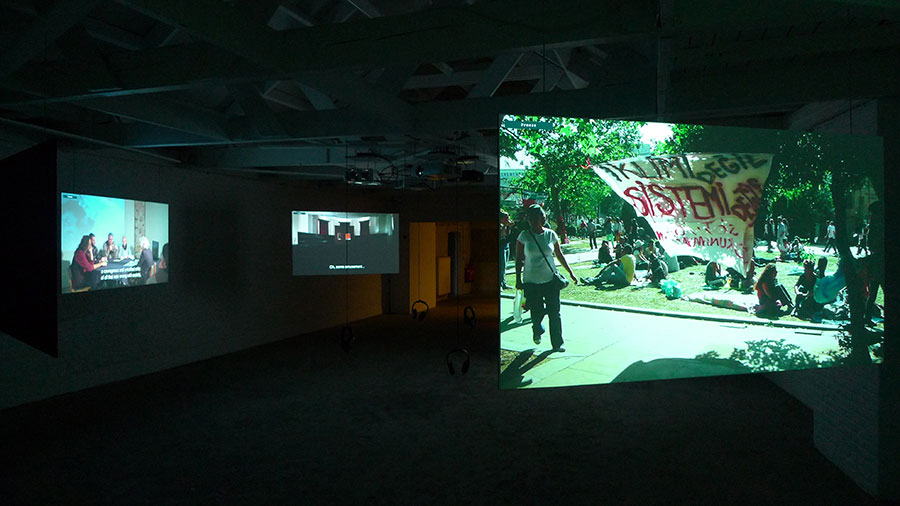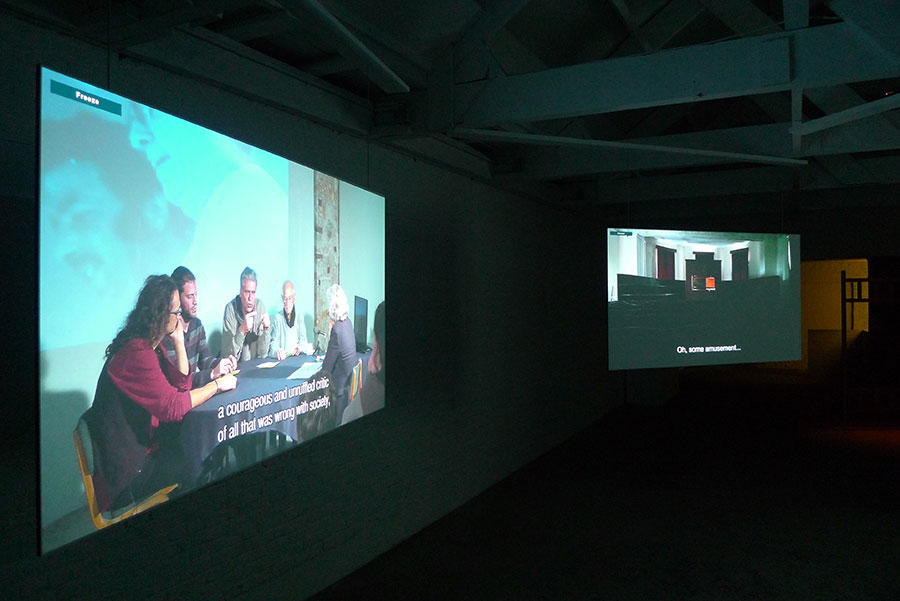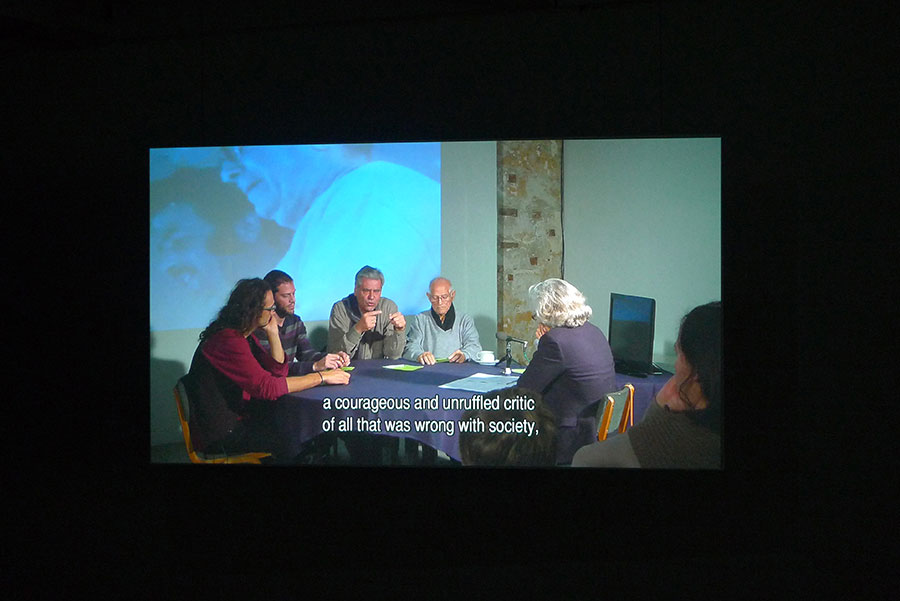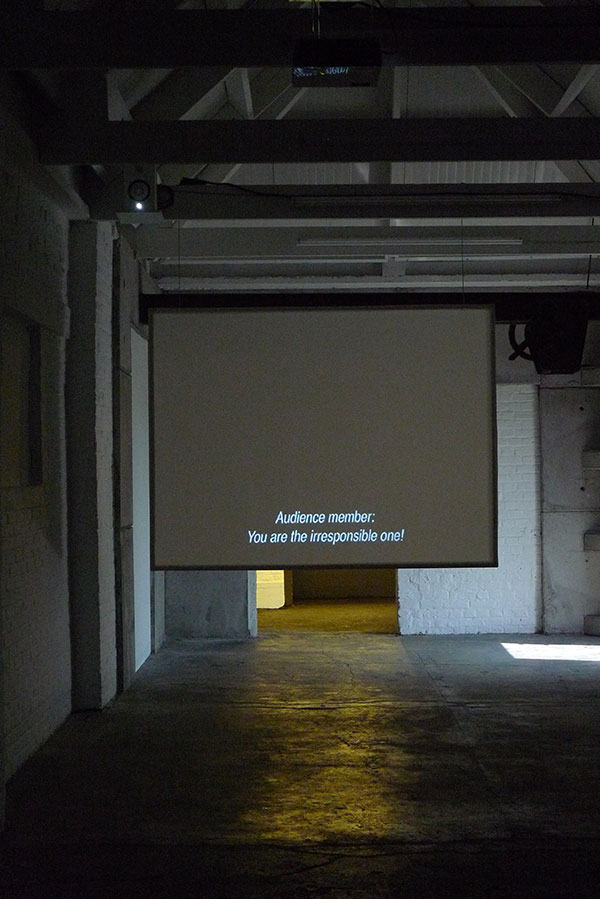Yar bana bir eğlence: Notes on Parrhesia.
Video Installation, 2015
In the front : Remake of the “screen”, the one of the two props of the Ortaoyunu tradition theater, based on images and drawings in old Turkish books.
A l’étage, dans le Pakhuis de Netwerk, une sélection de clips vidéo explore le thème de la ‘parrhesia’, si important dans les films les plus récents de Kamma. La scénographie, fragmentée et spontanée, joue sur la forme avec un pouvoir analogue à celui des paroles prononcées. C’est évident dans la formidable œuvre sonore « Note Il: Introduction », et puissant dans l’énigmatique installation « Yar bana bir eglence: Seven Notes on Parrhesia ». Aujourd’hui, à l’ère de l’information rapide, la transition de la communication orale à la communication écrite semble occuper une place mineure dans l’histoire cosmopolite. La voix de Karagoz s’est tue au XIXe siècle, quand la satire politique a été interdite. Le pouvoir social du théâtre oral a été étouffé par l’influence du théâtre occidental et par l’écriture. L’installation de Kamma offre au spectateur un espace libre dans lequel réfléchir sur le passage silencieux d’un ancien médium né de la voix du peuple, et qui a bien tenu la route, si on le compare à nos espaces publics numériques, excessivement urbanisés et excessivement contrôlés.
Yar bana bir eğlence: Notes on Parrhesia.
Video Installation, 2015
NOTES I, III, IV, VI, VII
02:08, 04:48 min, 02:46 07:39, 01:45
Written, directed and produced by ELENI KAMMA, in co-production with Jubilee and Netwerk vzw.
Cinematography BORIS VAN HOOF, ELENI KAMMA, ANDREAS HARALAMBOUS, Ilgın Deniz Akseloğlu & Ferhat Tokmak, Sound BORIS VAN HOOF, Jessica van Rüschen, Editing INNEKE VAN WAEYENBERGHE, Sound Design & Mix LASZLO UMBREIT, Script Montage TINA VAN BAREN. With the ‘voices’ of: Euripides Dikaios, Tacettin Dikker, Takis Hadjittofis, Yannis Kissonergis, Thodoris Kostidakis, Anna Maragou, Christodoulos Antoniou Pafios, Panos Panagiotopoulos, Emin Şenyer, Cengiz Ösbek.
Yar bana bir eğlence: Notes on Parrhesia.
Video Installation, 2015
NOTE II, 08:50 min.
The following extract is taken from an incident that took place in Athens in February 2014, during the opening speech of the Greek Minister of Culture for the EU presidency conference “Financing Creativity”. The conference addressed models of cultural policy in the coming decades. As artists were not invited as speakers, Mavili Collective, an Athens collective “committed to produce nomadic, autonomous collective cultural zones that appear and disappear beyond the logics of the market”[1], called for artists from different fields of practice to attend the conference.
Found on the mavili collective’s blog :
n 20th of February 2014, the Greek Minister of Culture and Sports Mr. Panos Panagiotopoulos delivered the opening speech of the EU conference ‘Financing Creativity’ in Athens. This conference seeks to address models of cultural policy in the coming decades. Yet not a single artist was invited as a speaker nor was the conference promoted publicly.
Given this situation Mavili Collective called for artists from different fields of practice to attend the conference. Having been excluded from a dialogue about cultural policies the artists present publicly expressed their feelings regarding the proposed role of culture and laughed. The response of the Minister is revealing.
The Minister of Culture stated in his speech that we need to be more competitive following the economies of China and Middle East since the cost of labour in Europe today is extremely high. The words most frequently used by many of the speakers were: competitiveness, business, industry, product, consumers etc. Mrs Lina Mendoni, General Secretary of the Ministry of Culture and Sports made the crucial statement that ‘Culture is economy’. A vision for the culture that is nowadays expressed openly and indicative of how the Greek State is increasingly abandoning its support of contemporary culture. Instead, as was stated clearly in the conference, the Greek State intends to fund private institutions that will then form the cultural landscape of the country. Does such a policy reflect the wider vision of the EU for culture? Some might say the conference was a fiasco, but was the fiasco the laughter or the cultural policies/narratives being proposed?
[sociallinkz]
